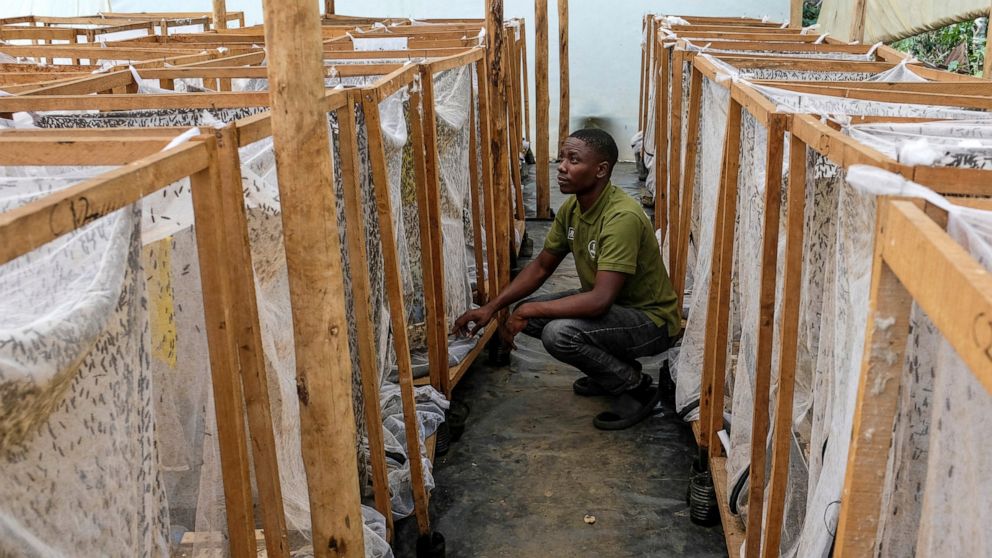KAYUNGA, Uganda — Moses Wamugango peered into the plastic vats where maggots wriggled in decomposing filth, the enviable project of a neighbor who spoke of the fertilizer problem he had been able to solve.
The maggots are the larvae of the black soldier fly, an insect whose digestive system effectively turns food waste into organic fertilizer. Farmers normally would despise them if they weren’t so valuable.
“I want the maggots too,” Wamugango said. The agriculture officials who distribute the vats for free took his name two weeks ago and said they would give him four to start. “I am still waiting. The last time they came, they didn’t reach my place. That’s the problem I have right now.”
Uganda is a regional food basket, but rising commodity prices blamed on Russia’s war in Ukraine are hurting farmers. Fertilizer prices have doubled or tripled, with some popular products hard to find on the market, according to the African Fertilizer and Agribusiness Partnership, a nonprofit that supports agriculture across the continent.
Most food produced in sub-Saharan Africa comes from smallholder farmers who deploy family labor. Agriculture experts want governments and outside benefactors to support them more, including via subsidies.
Some who have warned for years about depending too much on synthetic fertilizer see larvae farming as an exemplary effort toward sustainably organic farming. They hope the program can be ramped up one farmer at a time. Larvae farming programs exist in other countries, including Nigeria and neighboring Kenya, where parts of the country are suffering from drought.
In this Ugandan farming district not far from the capital, Kampala, hundreds of smallholder farmers have embraced the farming of the short-lived but fertile insect.
The number of farmers signing up swelled as the price of synthetic fertilizer rose, presenting many with the challenge of how to look after demanding plants such as coffee. From just two participants in January 2021, the number now stands at more than 1,300 larvae farmers.
The arrangement is mutually beneficial. The groups supplying farmers with young larvae and vats, waste management company Marula Proteen and agricultural exporter Enimiro, are assured a steady supply of larvae for their continuous breeding efforts. Farmers are guaranteed a three-fold cash profit over the 14 days they raise larvae on food waste, with the remaining mix of larvae poo and compost left to nourish their gardens.
“I used to be…
Click Here to Read the Full Original Article at ABC News: Business…

